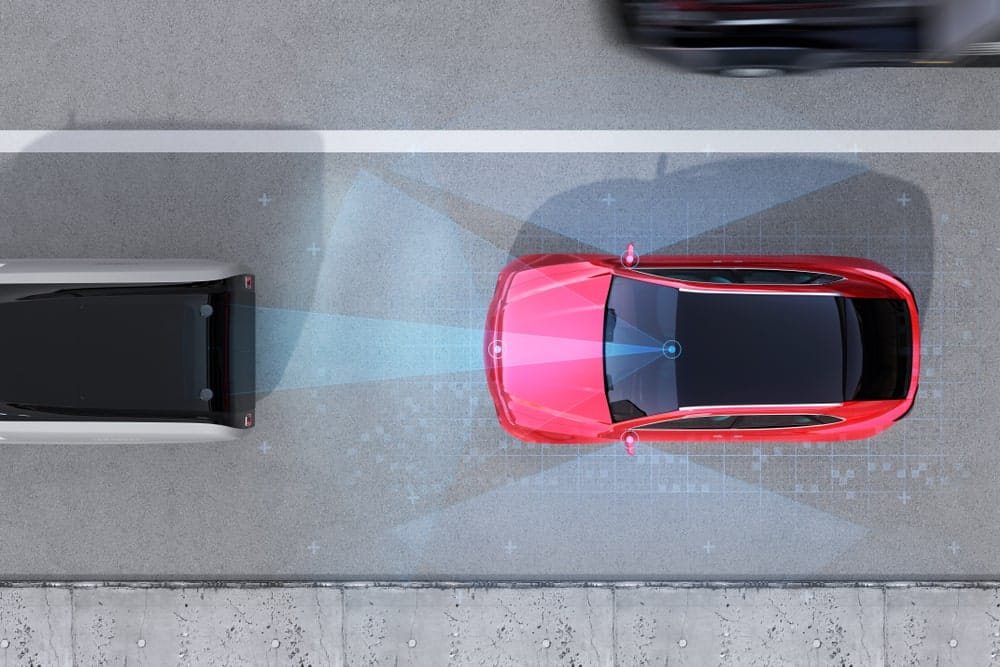Home > Car Loans
Car Loans from 6.19% p.a.
Whether you’re looking for a new or used vehicle, Savvy can help you get into your new car sooner! Compare a wide range of car loan options with us and save. (7.32% p.a. comparison rate)
Author
Savvy Editorial TeamFact checked
Faster, smarter, easier car loans from Savvy
Find a better car loan with Savvy
Buying a new car? Or buying a car that’s new to you? There are dozens of different car loan options out there, but which one is right for you? Savvy can help. Since 2010, we’ve helped hundreds of Australians drive a better car loan deal. We’re partnered with over 40 of Australia’s most trusted lenders, offering hundreds of different car loan options. When it comes to comparing and saving on car loans, Savvy makes it simple.
Finance your car, your way
At Savvy, we make it easy to finance your next car purchase. Brand new, certified used, or used through a private seller – we can help you find an affordable and competitive car loan and get your behind the wheel faster.
We offer a secure, streamlined application process, which means you could be driving away with your chosen car in under 24 hours. Our expert consultants work hard to scour the market to save you as much on your car loan as possible, even if you have bad credit. Ask us about our car sourcing service, delivering a car of your choice from our extensive dealer network direct to your driveway!

Why choose Savvy for your car loan?
40+ car loan lenders
We’re partnered with over 40 car loan lenders, giving you better options, and saving you more.
Competitive interest rates
We scour our lending panel for the lowest and most competitive car loan interest rates available, so you can secure the best deal.
100% online
Everything is 100% online with Savvy, with no need for messy paperwork. We can get you approved no matter where you live.
4.9-star customer satisfaction
We’re proud of our 4.9 out of 5 Feefo customer satisfaction rating, meaning Australians trust us to help them save on car finance.
Helping Australians since 2010
We’ve been helping Australians just like you since 2010, finding competitive car loans that save them more.
Doesn’t impact your credit score
Our consultants will conduct a soft credit check when assessing your application, meaning your score won’t be affected.
Feefo's Trusted Service Award winner with over 4,000 satisfied customers


Savvy is rated 4.9 for customer satisfaction by 4088 customers.

Our range of car loan options
A standard secured car loan for private usage. These come with fixed interest rates and allow you to borrow as much as 100% of your car’s value (plus on-road costs such as stamp duty and registration in some cases) and take between one and seven years to repay your loan.
A loan designed for the purchase of commercial vehicles. These are also available from $5,000 up to the vehicle’s maximum value, but they offer a range of tax benefits, such as claimable GST, interest and depreciation, as well as residual payments.
This is an arrangement between you, your employer and a novated lease company whereby payments for your lease come out of your pre-tax income. This means you’ll pay less income tax and your employer can also claim GST and depreciation for the vehicle.
Leasing is another commercial vehicle finance option. This allows you to access your vehicle without committing to its purchase and update your models more regularly. You can choose between fully-maintained and non-maintained leases, each of which comes with tax benefits.
You can refinance your car loan with us if you’re looking to cut down on the cost of your repayments. This essentially involves taking out a new loan to pay off and replace your current one, which you may also use to get a lower rate or fees or shorten or lengthen your term.
There are also options available to those who’ve struggled with their credit in the past or receive Centrelink benefits. We’re partnered with lenders specialising in second-chance vehicle finance, so we can help you get approved when you’re looking to buy your next car.
Our car loans at a glance
Your car loan interest rate will depend on several factors related to your profile, including your credit score, the type of vehicle you're purchasing and the type of car loan you choose.
Our car loan interest rates start from as little as 6.29% p.a. depending on your credit profile. However, your consultant can provide you with an indicative rate after we assess your application.
The amount you can borrow on your car loan will depend on factors such as your income, savings, asset backing, credit score and the value of the vehicle you want to purchase. Our car loans start from $5,000 but can reach far beyond $100,000.
The time to repay a car loan is reflected in the car loan term, which we provide to you as part of the approval process. This depends on what your lender offers and your borrowing power. We can help you find car loan terms ranging from 12 months to seven years, with repayments made weekly, fortnightly, or monthly. Note that weekly and fortnightly repayments will mean more repayments more often, and reduce the car loan term by approximately one month per year remaining on the term (e.g. 52 weekly/26 fortnightly repayments = 13 monthly repayments).
Car loan pre-approval, also known as conditional approval, is a process in which a lender processes your application and gives you a dollar figure of how much they are prepared to lend before you purchase a vehicle. (You can use this as a “price ceiling” in negotiations with dealers or sellers.) You typically have from one to three months to find a vehicle before this pre-approval expires. Talk to one of our friendly consultants to start the pre-approval process today.
Yes – Savvy helps Australians finance all types of vehicles, from brand new, certified used, used cars from private sellers, and classic or vintage vehicles. Some cars may be subject to eligibility due to age and condition (20+ years.) If you’re unsure, ask your friendly consultant.
When applying with Savvy, you can be formally approved for your car loan as soon as one business day after submitting your application. However, this will also depend on factors such as the time of day and week you apply and the complexity of your profile.
Yes, if you're self-employed and wanting to buy a car for 50% or more business usage, we offer a variety of business car finance solutions. Chattel mortgages, business hire purchase arrangements, and vehicle leases are examples of this. Personal vehicle loans have different restrictions than business finance, as it is not regulated under various financial legislation to the same degree.
Yes – you can apply for a car loan without a deposit, known as 100% finance. However, you will need to demonstrate creditworthiness and an ability to comfortably pay back the loan on time and in full. However, if you have a significant deposit (more than 10%) could help you save on interest as you don’t need to borrow as much.
The documents you’ll need as part of your car loan application include:
- Driver’s licence
- Last two payslips
- Savvy application, consent form and credit guide (supplied by your consultant)
However, additional information can help us make a more detailed profile of your finances, which can often influence the final interest rate lenders are able to offer you. In some cases, your consultant may request further documentation such as 90 days of bank statements, tax returns or Notices of Assessment if you’re self-employed and information about your car such as its make, model, age and repair or service history.
The eligibility criteria around applying for a car loan will be slightly different depending on the lender you ultimately select. However, Savvy’s own initial eligibility criteria is as follows:
- You must be at least 18 years old
- You must be an Australian citizen or permanent resident (some lenders can work with eligible visa holders)
- You must be earning a minimum income (typically at least $26,000) from stable sources such as regular employment
- You must have an average credit score or higher (although we may be able to help applicants who have bad credit)
How to apply for your car loan with Savvy
Complete your application
First and foremost, complete our simple online application form. This involves telling us about the loan you’re after, such as its size, term length, residency and employment status, borrowing and credit history and more. This should only take you a few minutes to complete.
Submit your documents online
We may require additional documents to verify your employment and income when assessing your car loan application. You'll be able to submit them and all the other required documents via our portal and sign your consent form electronically.
Receive your interest rate
Once we have your application, your consultant can get to work comparing car loan offers from our lender panel. They’ll get in touch to discuss the options best suited to your borrowing profile and provide an indicative rate. Once you select your preferred offer, we’ll be able to get you formally approved by your lender.
Sign off and drive away
You can expect to be formally approved within 24 hours of your application submission. Once all your loan documentation is signed, we’ll organise settlement for your new car with the seller. After you’ve done that, you can drive away in your new car!
Brands you can trust




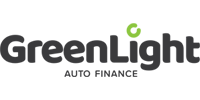





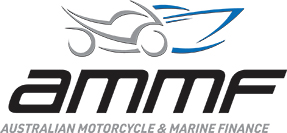













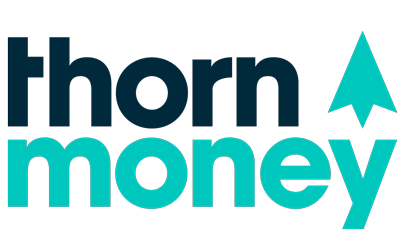





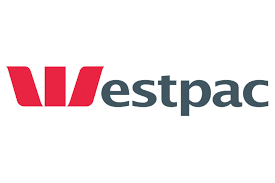






























Car loan repayments calculator
Your estimated repayments
$98.62
| Total interest paid: | $1233.43 |
| Total amount to pay: | $5,143.99 |
Got a question about your car loan?
A car loan comparison rate is an interest rate that combines the base interest rate as well as compulsory or ongoing fees associated with a car loan, expressed as a percentage per annum (per year.) These allow you to make direct comparisons between similar loan products and a clearer picture of the true extent of non-principal (amount borrowed) loan charges. Note that comparison rates do not include conditional fees such as exit fees, late payment fees, or statement fees.
For instance, one lender may offer a car loan at 7.5% p.a. compared to another at 8.0% p.a., but the latter may still be cheaper due to a comparison rate of 8.25% p.a. compared to 8.5% p.a. for the first lender. This is due to the fee schedule the first lender is offering as part of the product.
Yes, you will be able to pay off your auto loan early. In certain situations, this may result in an early repayment charge, the cost of which is determined by the size of your loan and the length of time remaining on your agreement at the time you pay it off. Many fixed rate loans will impose this restriction. However, some of our lending partners do not impose such penalties, so you may chat with one of our experts if you want to keep your options open about early repayment opportunities.
Yes – you can make free additional repayments during your car loan, rather than having to stick solely to the minimum required instalments throughout your term. Additional instalments won’t reduce the cost of your future repayments, but they’ll shorten your loan term, which can end up saving you a considerable amount of money throughout your agreement.
Yes – a balloon or residual payment on a car loan is similar to a deposit, except they’re attached to the end of your repayment period. This means that, with a balloon payment, you’re committing to paying a certain lump sum at the conclusion of your loan term. By doing this, you can reduce the cost of your monthly repayments, as less of your loan will need to be paid off on an ongoing basis.
For instance, a $50,000 car loan over five years at 6.5% p.a. interest would cost you almost $980 per month. However, by attaching a 10% balloon ($5,000), your repayments decrease to under $910 per month. It's important to note that the balloon will increase the payable interest by about $750 in this example, though, as your outstanding loan amount decreases to a final amount of $5,000 rather than $0. This means your payable interest will fall at a slower rate, thus costing more throughout your term.
The cost of your car loan instalments will be dependent on several variables, which include the following:
- The size of your car loan
- Your car loan’s interest rate
- Your car loan’s fees
- The length of your car loan repayment term
- Whether you pay off your car loan weekly, fortnightly or monthly
- Whether you make a deposit at the outset of your car loan
For example, a $30,000 car loan repaid over five years at an interest rate of 7.5% p.a. would come with monthly repayments of $601.14. reducing your rate to 7% p.a. would cut them down to $594.04, while shortening your loan term to four years would increase your instalments to $725.37 (but will save you overall). You can crunch the numbers and work out how much your car loan may cost each month with Savvy's car loan repayment calculator.
Yes – we work with specialist lenders who can help you get approved for your first car loan. If you can prove that you’re earning a comfortable living, have positive savings habits and are capable of maintaining consistent repayments, you can be approved for car financing with the right lender by applying with us.
Green car loans are a sort of financing provided by some lenders for the purchase of an electric (EV), hybrid (PHEV), or other environmentally friendly and/or low-emissions vehicle. The structure of these loans are similar to non-green/conventional car loans, but the benefit of acquiring an eco-friendly car with a green loan is that you'll qualify for an interest rate discount, which may reach up to 0.7 percent p.a. in some situations.
For example, if you wanted to buy a $65,000 automobile with a five-year car loan and a conventional finance package with a 7% p.a. rate, you'd spend little over $12,200 in interest. However, if you took out a green loan with a 0.7 percent p.a. rate discount, you would only pay roughly $10,950, saving over $1,300 over the course of the loan.
Furthermore, in some areas, such as South Australia, there are incentives for purchasing electric vehicles. It's critical to check your state or territory's government website to see whether you're qualified for a discount or tax break/incentive on your green vehicle purchase.
Yes – if you’re receiving Centrelink benefits which are fixed and consistent, you can generally count them towards your bad credit car loan. This can include payments such as aged, disability and veterans’ pensions, as well as single parent and carer payments. However, payments such as JobSeeker and Youth Allowance aren’t applicable, as they’re contingent on factors such as your employment and study status, meaning they could cease during your loan repayment period.
This is certainly an option, however with added convenience (buying your car and loan from the same source) usually comes higher costs. Dealerships offer dealer finance with incredibly low interest rates such as 1% or 0%p.a. However, these come with many caveats that may end up increasing the total cost of your car over the same term as a comparable lender loan, such as the ones offered by Savvy.
Some lenders may pressure would-be buyers to accept higher retail prices, higher fees, and require spotless (excellent) credit scores. These low rates may also lock you into higher rates after a “honeymoon” or introductory period has expired and force you into a balloon payment of over 30% or more, which you must come up with within a short space of time once the loan term concludes.
Useful resources to help you secure the right car loan
What are car loans and how do they work?
A car loan is a type of personal finance that gives you funds to purchase a vehicle and pay it off over time. During that time, you may drive the vehicle and use it as your own. However, you commit to a financial obligation to pay back your lender with interest to cover the costs of lending you a lump sum upfront, and they must be used to purchase a motor vehicle. Following the purchase of their vehicle, the borrower makes monthly payments to the lender, including interest and other costs associated with the loan, until their debt is completely paid off.
This type of finance makes car purchases affordable and manageable for everyday Australians. By the time most Australians of working age have saved up enough cash to buy a car – especially a new model – outright, it’s likely the amount saved may not cover the entire price due to inflation and may wipe out one’s entire savings in one go.
Instead, a borrower can spread out this cost over one to seven years (typically five) depending on their preferences and financial status. Since July 2012, over $1.1 billion has been invested each month in new, fixed-term loan commitments for the purchase of road vehicles, according to the Australian Bureau of Statistics.
Before committing to a car loan, you need to compare and contrast the many different options available to a would-be car buyer looking for car finance. By making a savvy decision, you could find more attractive and affordable options suited to your situation and needs.
What types of car loans are available in Australia?
There are numerous sorts of car loans available in Australia to assist consumers in purchasing a vehicle immediately rather than later. The sort of loan you select will be determined by your circumstances, such as why you require a car and the type of vehicle you wish to acquire.
All loans, apart from leases, share three aspects in common:
- A principal (the amount borrowed)
- Interest and fees (the amount lenders ask for in return for supplying a lump sum up front)
- And a loan term (how long you choose to pay back the loan, ranging from one to seven years.)
In Australia, the most common forms of car loans are (but are not strictly limited to):
Secured car loan: A secured car loan requires the borrower to put up collateral (typically the vehicle itself) to secure the loan, which the lender can reclaim if the borrower defaults (fails to pay back the loan). In general, secured loans have lower interest rates than unsecured loans as a “reward” for the borrower taking on more risk.
Unsecured car loan: Unsecured car loans are the opposite to secured car loans, insofar that the borrower is not compelled to make their car the collateral for the loan. Therefore, the value of the loan is not tied to the asset purchased. This may also be known as an unsecured personal loan. These will have higher interest rates compared with secured car loans, due lenders taking on more risk.
Fixed rate car loan: A fixed rate car loan sets a consistent interest rate that is “fixed” for the entirety of the loan term. In this case, repayments are consistent amounts which allows greater certainty in budgeting.
Variable rate car loan: Variable rate car loans have interest rates tied to the financial markets, notably the RBA cash rate. If rates go up, so do your repayments. If they fall, one may take advantage of lower repayments. This provides greater flexibility at the expense of less certain repayment amounts each month. Variable rate car loans also typically allow for additional repayments without significant or no penalty.
Chattel mortgage: A chattel mortgage is a sort of secured car loan designed for businesses that allows them to deduct interest and GST paid on the vehicle purchase, as well as depreciation and any available instant write-offs for asset purchases. The company buys the car, and the lender takes out a mortgage on it as collateral for the loan. Note that these are not regulated to the same degree as consumer car loans. Ask your consultant if chattel mortgages are right for your business situation.
The following car finance options are not loans but leases – a finance package where a lessor (person taking out the lease) gains access to the use of a car for a set period. Common car lease options include:
Car lease: A car lease is a kind of financing in which the borrower leases the vehicle for a defined length of time and pays monthly payments to the lender. At the end of the lease period, the borrower has the option of returning the vehicle or purchasing it entirely (depending on the type of lease they take out). Using Savvy’s simple calculator, you can calculate the cost of your car lease.
Novated lease: A novated lease is a three-way agreement between an employer, employee, and novated leasing company (usually a lender or a bank) where the borrower’s employer leases the car on behalf of the borrower, with the payments being made to the leasing company from the borrower’s pre-tax income. The benefit to the employee being their taxable income is reduced; the benefit to the employer is they can provide an incentive to staff without paying additional Fringe Benefits Tax. At the end of the leas’, the employee may purchase the car, sell it to pay a residual value payment, or hand the car back to the finance company.
Commercial hire purchase: Similar to a chattel mortgage in operation, A hire purchase arrangement is a sort of automotive finance in which the borrower rents the vehicle from the lender, who then buys it. The lender transfers ownership of the vehicle to the business at the conclusion of the hire period, following receipt of the last payment. This may be suitable for certain types of “off-book” accounting methods.
How do I get the best car loan for my needs?
When selecting which car loan is ideal for your circumstances, there are several factors to consider. Your Savvy consultant will assist you in comparing a broad range of car loan choices to determine which is best for your circumstances, but keep the following in mind:
- What is the reason for buying a car?
Though it may seem obvious, it’s important to explore why you are buying and what type of car you intend to buy. Are you looking to upgrade a “clunker” with something brand new and more efficient? Are you transitioning to an EV? Maybe you are buying used to modify or repair it. Each situation may have a different ideal car finance agreement depending on your use case, so it’s crucial to think about what that may be for you.
- Consider your budget
It is critical to examine your budget while applying for a car loan. Determine how much you can easily pay each month depending on your income, spending, and liabilities. Your lender will also consider other factors such as the stability of your work, your credit history, and the value of your car when determining your borrowing capacity.
When evaluating how much you may spend and borrow, remember to account for other fees like as insurance, registration, and maintenance as these are ongoing costs which can affect what you can ultimately afford.
- Check your credit score
It is critical to monitor your credit score. Your credit score is a numerical representation of your creditworthiness that is used by lenders to determine whether or not to accept your loan application. Credit scores range from 0-1000 or 0-1200. A strong credit score (<800) will help you achieve a reduced interest rate, but a bad credit score (>600) could result in higher interest rates or possibly loan refusal. You can check your credit score every three months for free at a credit reporting bureau.
- Understand the terms and conditions
Before agreeing to anything, you need to understand the terms and conditions of your loan, as well as your obligations – as well as a lender’s obligations to you. Make sure you understand the interest rate, repayment schedule and any fees associated with the loan. It may also be worth checking what your lender’s hardship measures are if you want to cover your bases in case you end up struggling with repayments at any point. If you do not understand the terms and conditions, a lender is legally obligated to refuse credit as part of responsible lending practices. If you do not understand anything in a loan contract, ask your consultant for assistance or translation help.
- Shop around for the best deal
When looking for a car loan, it is critical to compare offers from several lenders. Interest rates and loan conditions can vary greatly, and comparing offers might save you hundreds of dollars over the life of the loan. When you apply with Savvy, you’ll be able to explore offers from lenders all throughout Australia, with your experienced consultant assisting you in determining which is the most reasonable and fit for your circumstances.
How do I compare car loans?
For those new to car loans, striking the right balance between affordability and features can seem daunting. When you are in the market for a new car, you are also in the market for a car loan for the most part. Just like how comparing different car models is important, so is comparing different car loan products. Our committed and experienced consultants perform the heavy lifting for you, comparing lenders from our panel to connect you with the one that best meets your demands as a borrower. However, if you want to gain a sense of the market before applying, consider the following factors:
- Interest rates and comparison rates
The “headline” of any car loan comparison is looking at the interest rate. This is what you pay on top of the principal (amount borrowed) in return for gaining access to a lump sum of funds to purchase a car with. The most major expense levied on your car loan is interest, which may cost you thousands of dollars, if not more than $10,000 in total, depending on its size and term length. Even a seemingly minor change in rates can save you a significant amount of money in the long run. For example, a $50,000 automobile loan repaid over five years at 6% p.a. would cost you just under $8,000 in interest, while a loan at 5% p.a. would save you about $1,400.
Comparison rates allow you to make “like-for-like” evaluations between car loans, as most fees and charges are included in the per annum rate, expressed as a percentage.
- Available repayment terms
In most circumstances, regardless of who you’re trying to apply with, the prospective range of conditions supplied by your lender will be relatively constant. As previously said, this normally runs from one to seven years, however this is not always the case with all lenders. Some may impose lengthier minimum or shorter maximum durations, so keep this in mind when comparing finance packages if you’re searching for a very short or lengthy loan term. Remember, shorter loan terms mean higher repayments compared with longer loan terms, but may reduce the overall interest paid (assuming the same principal amount borrowed and interest rate.)
- Minimum loan amounts
While vehicle loans normally do not have maximum loan limits (since the car itself serves as security for the loan), they do have a minimum necessary amount. This might range from as low as $2,000 with certain specialised lenders to $10,000 or more with others. Of course, this is only really crucial to be aware of if you’re planning to purchase a used car or put down a large deposit on a new car, but you should still check to make sure the lender can accommodate the loan amount, depending on if you are eligible or not.
- Fees and charges
With very rare exceptions, fees and charges are part and parcel of any type of car loan. This may be applied to your loan for a variety of reasons such as time incurred by your lender for processing certain requests or as disincentives to pay your loan back early (as early exits means less interest goes back toward the lender.)
Sign-up or application costs, additional repayment expenses, and continuing or monthly repayment fees are all examples of these. These can mount up throughout the term of the loan, therefore they must be considered when comparing loans. These fees may also be expressed as part of a comparison rate (see above.)
Other fees may be conditional such as late fees, early exit or break fees, which are only payable if and when they occur and are not ongoing. These fees are not included in comparison rates.
- Vehicle eligibility requirements
If you want to buy a used car, you'll also need to make sure it fulfils your lender's secured loan standards. Because your lender will buy it in order to reclaim lost cash if you are unable to repay your loan, they must verify that it can be resold to cover the majority of their losses. The most important condition is the age of the vehicle, which may be up to 20 years old with our lender panel (or beyond 25 with unsecured finance).
Your vehicle may also be needed to have been constructed in Australia or imported here by its manufacturer, as well as not having been previously stolen or written off, both of which may vary amongst lenders. If you’re ever unsure, ask your friendly consultant.
Helpful guides on car loans
Disclaimer:
Interest Rate from 6.19%, comparison rate of 6.32 p.a. based on a 5 year secured consumer fixed rate loan of $40,000. **WARNING: The comparison rate, monthly repayment and total cost applies only to the example given and may not include all fees and charges. Costs such as broker fees, redraw fees or early repayment fees, and cost savings such as fee waivers, are not included in the comparison rate but may influence the cost of the loan. Different terms, fees or other loan amounts may result in a different comparison rate. Establishment fees and monthly fees apply only to consumer loans. Commercial use loans may attract different fees.



